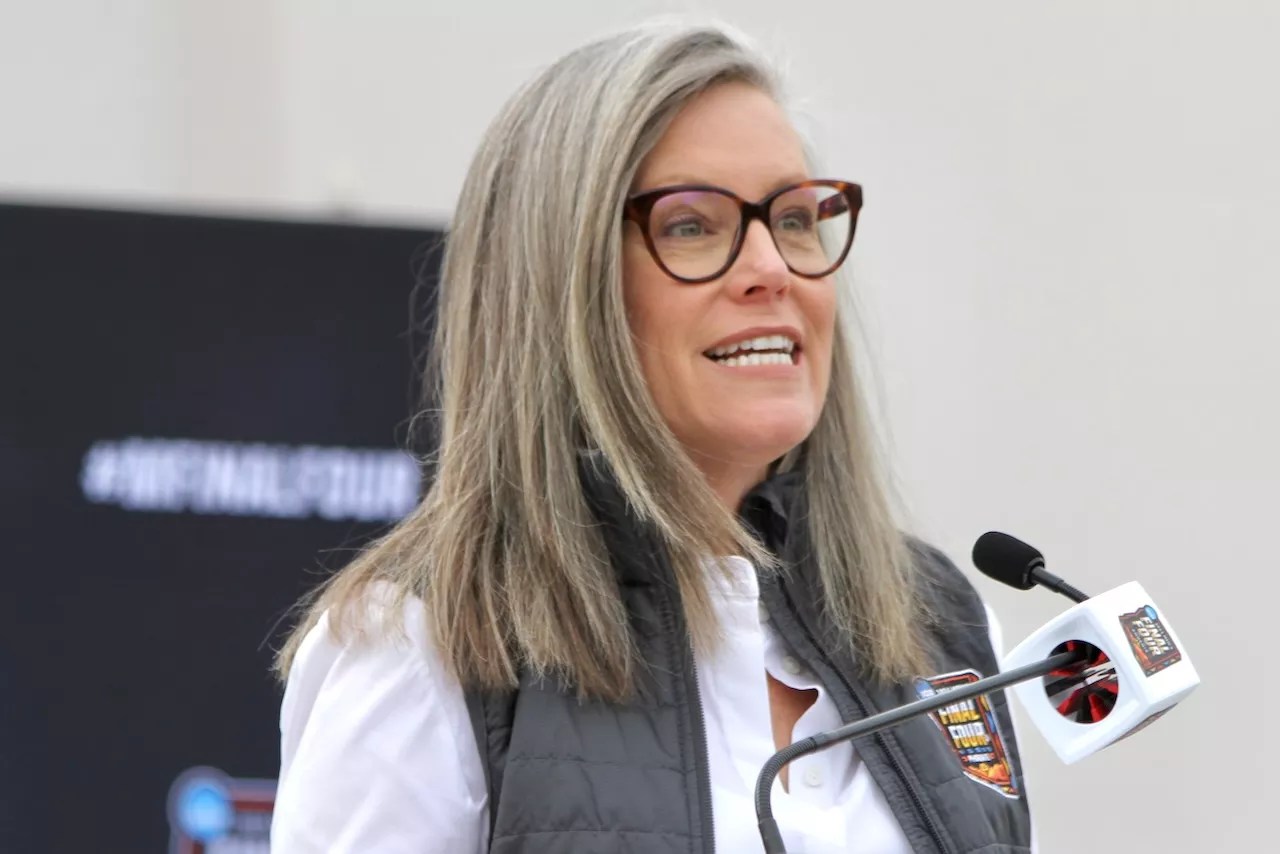
aluxum/Getty Images

Audio By Carbonatix
Editor’s note: This story has been updated to include a statement from the policy director of the ACLU of Arizona.
***
In the mood to watch some porn? Get ready to hand over your driver’s license.
Thanks to a new law signed this week by Gov. Katie Hobbs, Arizona porn-watchers – a swath of the population that’s much larger than most would openly admit – will face new hurdles in the quest to get their kicks. When the law kicks into effect this fall, Arizonans accessing porn sites will be met with a virtual bouncer requiring users prove they’re at least 18 by submitting a government ID submitting to other invasive age-verification methods.
And that’s if porn sites, wary of being sued, don’t block Arizona users entirely.
The bill was introduced by Republican state Rep. Nick Kupper, ostensibly to prevent minors from accessing websites with sexually explicit material. In a statement to Phoenix New Times, Hobbs spokesperson Liliana Soto said the bill was a “modest step” toward limiting children’s access to explicit material and that Hobbs had heard “from parents and concerned Arizonans about the harmful impact explicit materials have on our children.”
No one worth listening to would argue that children should be able to access porn, of course. But free speech and LGBTQ+ advocates worry the new law will carry serious unintended consequences. Queer activists have warned that the bill’s loose definition of “sexual material” could be made to apply to educational material about LGBTQ+ history and culture, including books that mention queer characters. Kupper has said that is not the law’s intent.
‘The standard this law establishes is purposely vague, allowing government officials to censor expressive conduct they believe the public should not have access to,” said Darrell Hill, policy director at the ACLU of Arizona, in a statement to Phoenix New Times. “This could very well include materials that are not obscene, such as content concerning LGBTQ+ people and reproductive health.”
Others see the law as an obvious First Amendment violation, which is why Hobbs vetoed similar legislation last year. Free speech advocates point out that many adults who have a right to access porn – and a right to keep that activity private – would be understandably wary of providing personal information to a third party.
The law prohibits any third-party companies that run age verification for porn sites from keeping or sharing the information they obtain with government entities. Still, as Free Speech Coalition director of public policy Mike Stabile told an Arizona House committee in March, “There’s not a whole lot of oversight.” Other than allowing people to sue if their data is mishandled, the law includes no enforcement mechanisms to prevent violations on the front end.
Stabile, whose organization has worked in other states to combat this type of legislation, said in Senate testimony that Free Speech Coalition has “heard in other states” that third-party companies “plan on monetizing this data,” though the new Arizona law specifically prohibits the sale of such information.
“I just don’t think that it’s realistic – when you talk about the way that the internet works, when you talk about the way that this data is being used – to have millions of people scanning their faces and uploading their IDs every time they want to access websites on the internet,” Stabile said, who is also a documentary filmmaker and activist for sex workers and sexual speech.

A spokesperson for Gov. Katie Hobbs said she signed the age-verification law because was she heard “from parents and concerned Arizonans about the harmful impact explicit materials have on our children” and the law was a “modest step” toward limiting children’s access to explicit material.
Matt Hennie
Privacy concerns
Several Democratic state senators, including Sens. Analise Ortiz and Lauren Kuby, voiced similar privacy concerns in a March committee hearing on the bill. Kuby cited concerns over free speech, data breaches, privacy and government overreach. Ortiz called the bill “a violation of privacy rights of adults,” and said it was “scary territory we’re getting into with this bill.”
Hill echoed that, calling the new law’s age-verification system “a step towards government surveillance, plain and simple.”
“Submitting an ID online for sensitive content is simply not the same as flashing an ID at a checkout counter,” Hill continued. “The process is expensive and complicated – and consumers face real risks of identity theft and exposure. Age verification bills force adults to divulge specific details about their private lives to government censors to access information that should be readily available under the First Amendment.”
Big porn companies, including PornHub, have blocked IP addresses from states that have passed legislation similar to Arizona’s. The Arizona law states that websites that fail to age-verify can be sued by a minor’s parents and face penalties of up to $10,000 for each day they fail to properly vet users. If a minor accesses a site due to a lack of age verification, parents can recover an extra $250,000 in a lawsuit.
Rather than open that can of worms, PornHub has simply blocked entire states from pulling up its website. Utah users have been unable to access the site for two years. Those who really want to can use a virtual private network to circumvent the firewall, but PornHub and others have decided that they’d rather lose the business than accept liability for what a kid might access.
Rather than plot a course around coughing up one’s ID, less internet-savvy users might just migrate to sketchier corners of the internet.
In his hearing testimony, Stabile said the bill could worsen the type of sexually explicit material minors are seeing online. Rather than submitting an ID, adults and horny kids might choose to visit sites that are less concerned with obeying the new law or abiding by other industry requirements, like ensuring all porn video participants are of age and have consented to being filmed. Like with abortion restrictions and marijuana, criminalization of a product doesn’t stamp it out as much as it funnels people to riskier underground sources.
In states where similar legislation has been implemented, Stabile said minors’ access to adult material “hasn’t meaningfully changed.” Since 2022, More than 20 states have enacted age-verification laws, including a Texas law that inspired Arizona’s. Free Speech Coalition sued Texas over its law, advancing the case all the way to the Supreme Court. The Court heard oral arguments in January but has not yet issued a ruling.
Until all that is sorted out, Arizonans should get their IDs ready. If they’d rather not, they should enjoy the access while it lasts. The law is set to take effect in Arizona 90 days after the end of the legislative session, which is expected to be late June. After that, it may be back to using your imagination.